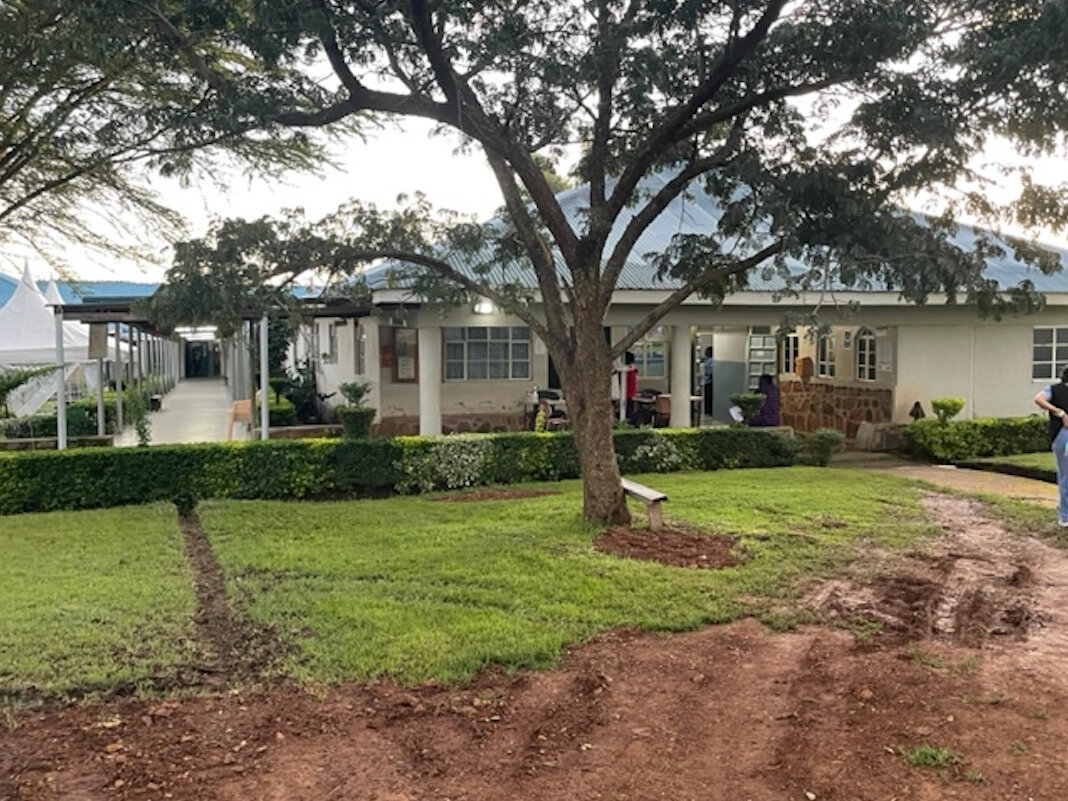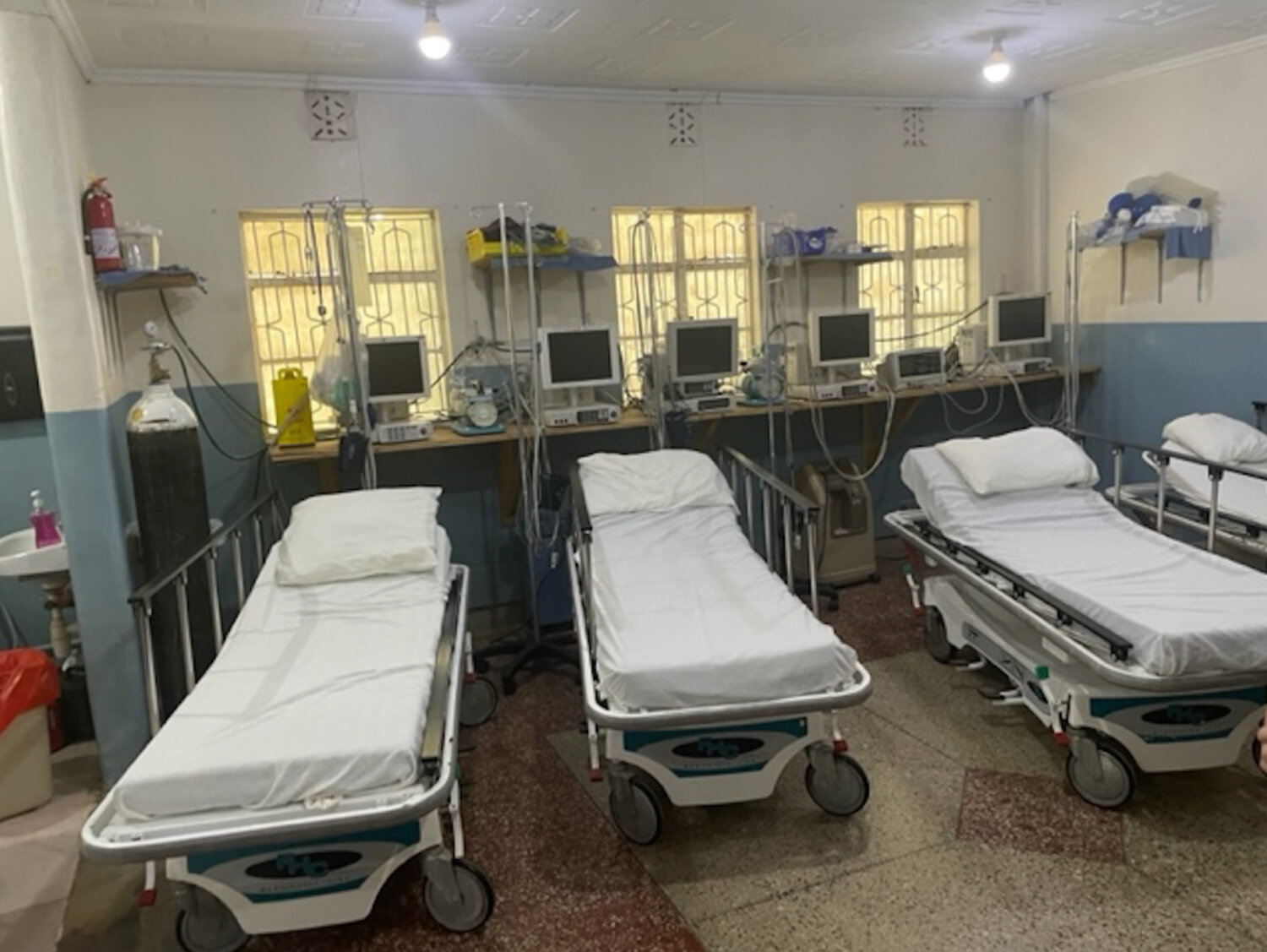Helping others in need, Sophia Specht, a nurse, prepares for second mission trip
If you ask Sophia Specht about ways in which you can help others, she’ll tell you it doesn’t have to do with money. Donating your time, simple products, and outside-the-box thinking can have an impact on others’ lives.
A nurse at Huntington Hospital, Specht is preparing to embark on her second mission trip this year, having taken her first in May. While she understands that not everyone may have the luxury to take time off from work and pay to travel to where help is needed, donating medical supplies and scrubs at home can make a huge difference abroad.
Specht has always been committed to giving back when possible. Now living in Bellmore, she grew up in Wantagh, where she helped start a recycling club at Wantagh High School in the late 1980s. She has volunteered at local animal shelters, and was a paramedic at the Wantagh-Levittown Volunteer Ambulance Corps.
“We live in such a disposable society,” Specht said. “I’m looking around my house right now, and I have these reusable shopping bags. My house has three people, and we probably have 30 bags. You can bring them to a food pantry, and the pantry will pack food for their clients to bring home. It’s the simple things.”
Specht’s trip to Kenya in May was inspiring, and opened her eyes to the ways in which other countries approach everything from recycling to, of course, medicine.
“I know it sounds a little hippy-ish, but in America there’s so much waste,” she said. “It’s about, what do you do with the extra things that you have in life? Are you recycling? Are you up-cycling and repurposing? Are you donating clothes? It’s all these little things that I feel we’ve lost our way on, or we’ve never had our way.”
Specht’s mission trips were not sponsored by the hospital; she volunteered for them, at her own expense. She traveled to Kenya with the group Kenya Relief, and will travel to the Dominican Republic later this month with Foundation for Peace.
When she first told her colleagues at Huntington Hospital about her trip, the support she received was incredible, she said. “The answers I was getting were, ‘Oh my god, what can I give you? What do you need?’” she recalled. “One of the big things I did was a scrub drive. Where I work, we have to wear certain color scrubs. Over the years, some people get pregnant, some people lose weight, gain weight. But they have scrubs in great repair.”
She ended up collecting about 30 sets of scrubs, and took them with her to Kenya, where she and a small American medical team stayed at an orphanage and worked at a nearby clinic. Their focus was on gynecology, and Specht said they saw more than 100 women, gave sonograms and exams, and performed 17 surgeries.
“It was Mother’s Day week,” she said. “It was a lot of patients in their 20s who couldn’t conceive because of fibroids. You can’t guarantee it, but we gave them a better shot at fertility.”
The doctors performed hysterectomies on older women who needed them, and helped identify one case of abuse of a patient with a sexually transmitted disease. Specht said they encountered diseases and other conditions that aren’t common in the U.S. — severe dehydration, and lice and bacterial infections in intestinal tracts that aren’t seen in this country.
Even practices like post-operative procedures are drastically different, she said. “(In the U.S.), you can’t leave after surgery unless a responsible adults comes and picks you up,” she said. “You know, they wheel you out to your car, the responsible party drives you home. In (Kenya), you have an open hysterectomy — you’re getting on a moped and you’re driving to Tanzania for two hours after having abdominal surgery.
“America is very cushy,” Specht went on. “And when that cushion gets disrupted, Americans freak. It kind of sobers you up from what we’re used to and what’s out there.”
The focus of her upcoming mission trip to the Dominican Republic will be pediatrics, Specht said. Clinics are open all year long, she added, and can always benefit from donations. In Kenya, they accept recently expired medical supplies, but in the Dominican Republic, donations do not expire.
To contact Specht about donations and other ways to help, email sophiaspechtrn@gmail.com.
“I guess my take-home point would be, if you have medical supplies that are expired, or it’s not compatible with your equipment any more, don’t automatically dump it — see if they can be repurposed,” she said. “We have doctors’ offices that over-order supplies and don’t need things; we have doctors who retire.
“It’s pretty much just looking around, and going ‘I don’t need this stuff,’” she said. “Keep it out of the landfill — give it to someone who can use it.”

 50.0°,
Overcast
50.0°,
Overcast 







